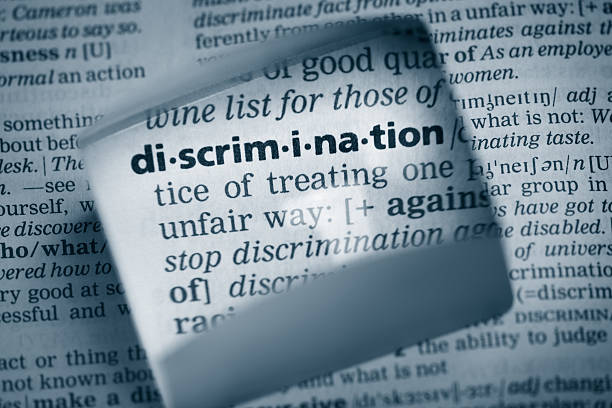
Although the Israeli-Hamas war is a conflict based on a territory, Palestine, the diaspora of Palestinians and Jews spread several protests even abroad. Thousands of people marched in the Belgian and German capitals on Sunday 10 December to protest soaring antisemitism. Similarly, previous marches in Paris drew tens of thousands of people, including political figures, like Prime Minister Élisabeth Borne and former presidents François Hollande and Nicolas Sarkozy. They headed the march, holding a banner with the slogan “For the Republic, against anti-Semitism.” French interior minister Gérald Darmanin shared that more than 20 people have been arrested in connection with antisemitic incidents in recent days. Instead, on October 13, London’s Metropolitan police reported a significant rise in antisemitic and Islamophobic attacks. In Russia, a riot broke out at an airport in which there were some antisemitic chants and posters from a crowd of men looking for passengers who had arrived from Israel. A Berlin synagogue was firebombed. In Prague’s Little Quarter, staffers at the well-known Hippopotamus bar refused to serve beer to several tourists from Israel and some patrons served up insults. Overseas the situation is even more vibrant. In the US, university campuses there have been many pro-Palestinian rallies. In general, the impact of Hamas’s attack on Israel has included an increased number of threats against both Jewish and Muslim communities.
Regarding antisemitism, the murder of about 1,200 people in Israel by Hamas represented the biggest killing of Jews since the Holocaust. Concern about rising antisemitism in Europe is fuelled in part by what happened to Jews before and during World War II, as it instil fear in those Jewish people who have relatives who were witnesses or victims of riots against Jews and Nazi brutality. Critics of Israel’s policies and antisemitism have long been blended by Israeli leaders such as Prime Minister Benjamin Netanyahu. Accordingly, blurring helps undermine opposition to the country’s policies and amps up perceptions that any utterance or incident against Israeli policy is antisemitic. Indeed, many Jews feel targeted due to this war, even though protesters usually claim their call is for Palestinian freedom and not against Israel or Jewish people.
However, many protests are specifically against Israel and Jewish people. During these days, in the US foreign policy and propaganda were clearly showed off as tools for electoral campaigns. For instance, conservative stakeholders began to embrace an antisemitic, race-based ideology called replacement theory, which holds that Western elites, sometimes manipulated by Jews, want to replace and disempower white Americans, in part by encouraging unfettered immigration. As a consequence, this theory has helped inspire several mass shootings in the American country. However, in this specific case, violence bound to the Israeli-Hamas war erupted as on October 14 a young Palestinian American boy was murdered by his landlord, who reportedly was angry about Hamas’s attack on Israel. Then, many protests against Israel’s military campaign in Gaza convulsed US college campuses, together with hostile and violent rhetoric toward Jews. At George Washington University, a pro-Palestinian student group was suspended for projecting the messages “divestment from Zionist genocide now” and “glory to our martyrs.” Meanwhile, Brandeis University banned its local Students for Justice in Palestine chapter because it “openly supports Hamas.” Eventually, in the first week of December 2023, as the presidents of three elite universities struggled to answer a question about whether “calling for the genocide of Jews” would violate school rules, one of those presidents, Ms. Elizabeth Magill of the University of Pennsylvania, resigned. The Biden administration was thus obliged to unveil new actions and resources to address this rise in antisemitic and Islamophobic incidents at schools and on college campuses. According to the Council on American-Islamic Relations (CAIR), the Muslim civil rights and advocacy organization received a total of 1,283 requests for help and reports of bias between 7 October and 4 November. It also revealed that the recent increase in Islamophobia and anti-Arab sentiment across the US marks a 216% increase over the previous year.
Nonetheless, another danger is the online proliferation of antisemitism and islamophobia. It is also due to this web development that incidents and violence offline increased. Hate speech contributes to reinforcing and inciting aggressive actions, as well as creating an environment of fear for impacted communities. Further, mis- and disinformation about the conflict in Gaza amplified by state actors has implemented the broader setting of anti-Semitic content online. In similar ways, extremists and terrorist groups learned from it and also sought to exploit the war by proliferating anti-Semitic and Islamophobic content online to further their own agendas, including radicalization and recruitment.
On the other hand, solidarity is expressed by Muslim neighbor countries to the Palestinian population. Yet, these protests are mainly peaceful in nature and reflect the growing trend in Arab mass mobilization to renounce violence as a means of pursuing political objectives and a desire for stability. In sum, the mainstream Arab public space put forward pro-peace and pro-life values without any attempt to justify Hamas’ actions, neither with references to the ongoing occupation and siege of the Palestinian territories nor by evoking militant Islamist anti-Jewish rhetoric that has lost its popular appeal in recent years.
As violent protests have always proved to be unsuccessful in achieving the group’s goals, these examples of governments’ reactions should convince strikers and activists that peaceful mobilization is the best way to fight for a cause. There is evidence that much disinformation and propaganda, inciting violence, is used for political reasons like gathering consent but is not efficient in obtaining a determined policy. Yet, numbers are impressive and peaceful mass mobilizations show stakeholders the sentiment of a population and can drive them to take particular decision, i.e. joining the political table of the Israeli-Hamas conflict resolution.
By The European Institute for International Law and International Relations
References















